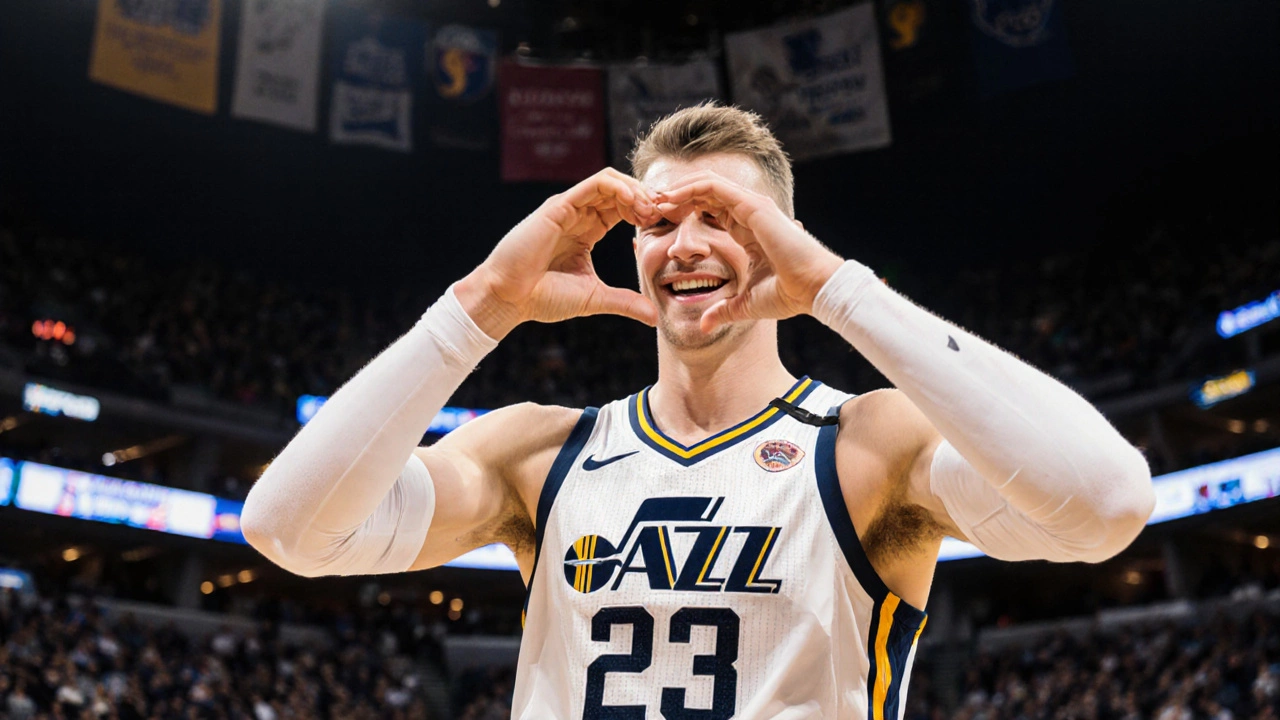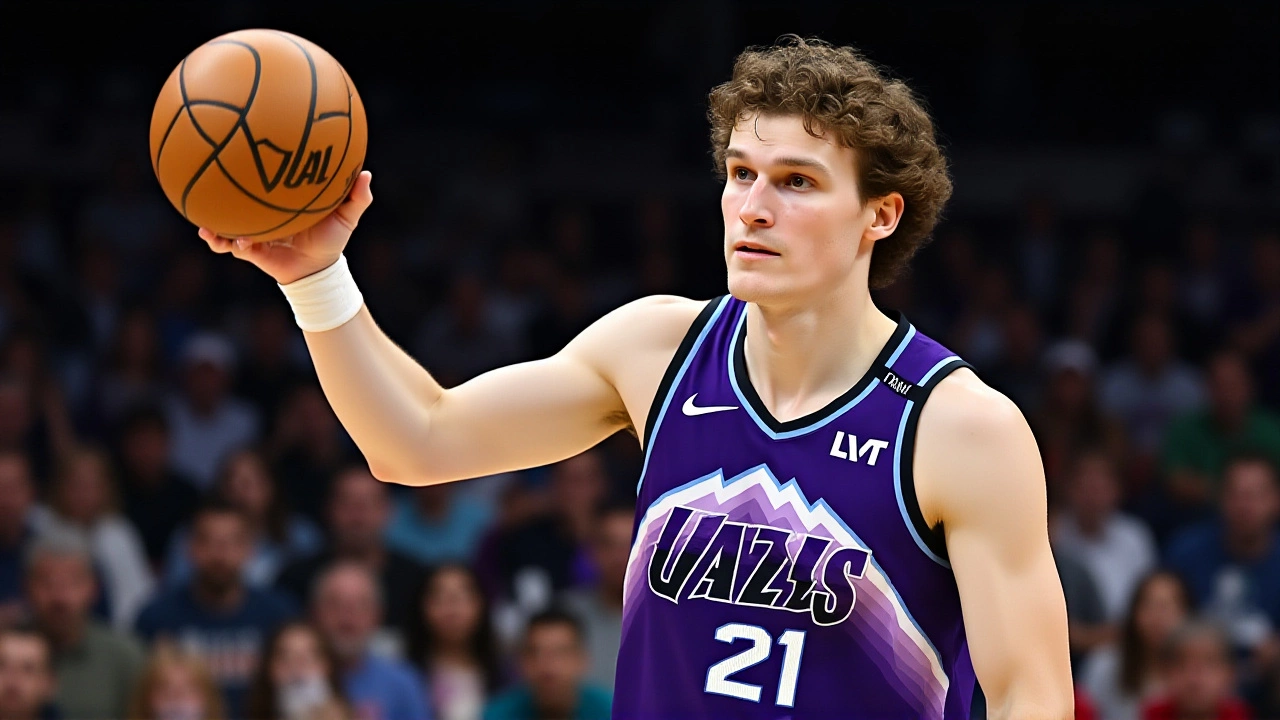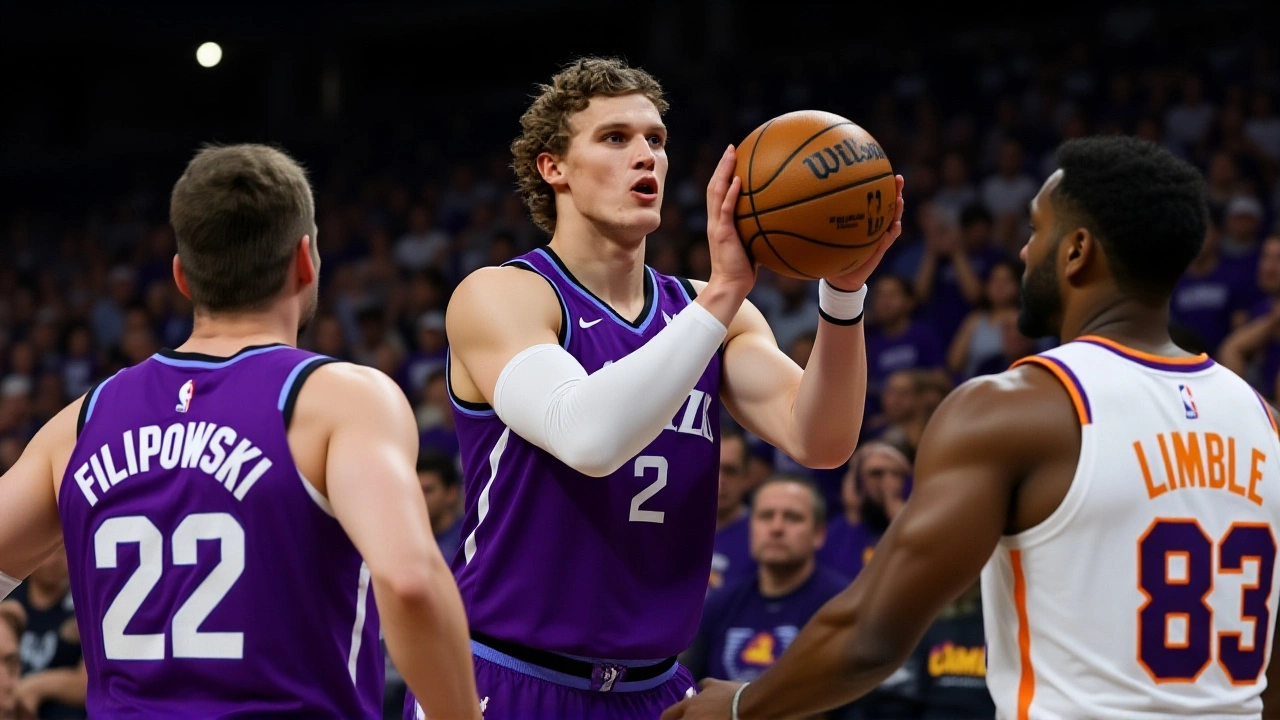The Utah Jazz didn’t just win Monday night—they rewrote their franchise history. In a breathtaking 138-134 overtime victory over the Phoenix Suns at Vivint Arena in Salt Lake City, Finnish forward Lauri Markkanen dropped a career-high 51 points, becoming the first Jazz player since Karl Malone in 1998 to crack 50 in a regular-season game. And he didn’t just score—he perfected it: 17-for-17 from the free-throw line, 6 three-pointers, 14 rebounds, and ice in his veins when the game hung in the balance. The crowd? Electric. The stakes? Higher than ever.
Markkanen’s Masterclass: A New Era in Utah
It wasn’t just a big night—it was generational. Markkanen, 28, entered the game averaging 24.3 points this season. No one expected this. He attacked the rim, drained pull-ups, and when the Suns doubled him, he found open teammates. But the defining moment? His flawless free-throw shooting under pressure. With 17 attempts, zero misses. That’s not luck. That’s discipline forged in European academies and honed in NBA trenches. He joined Malone (who scored 52 in 1998) as the only Jazzmen to reach 50 in the regular season. And he did it in front of a sold-out arena that hadn’t seen a performance like this in 27 years.Keyonte George, the 22-year-old guard from Texas, wasn’t far behind. His 26 points and 10 assists were the kind of playmaking that turns good teams into contenders. Walker Kessler, 25, added a 25-point, 11-rebound double-double, while Jarred Vukasin Nurkic—yes, that’s the same Nurkic who plays for the Jazz now—dominated the glass with 13 rebounds in just 17 minutes. This wasn’t a one-man show. It was a symphony of effort.
The Suns Fight Back—But It Wasn’t Enough
Devin Booker didn’t go quietly. The 29-year-old All-Star poured in 34 points and 10 assists, hitting two ridiculous three-pointers in the final 30 seconds of regulation to force overtime. The first came with 18 seconds left, a step-back from the left wing that sent the Suns bench into a frenzy. The second? A contested, off-balance heave from 28 feet that somehow kissed the glass and dropped. Then came the final possession: a tipped rebound, a jump ball, and a putback that tied the game at 124. It was textbook Booker—clutch, creative, relentless.But the Jazz had an answer. Will Hardy’s team didn’t panic. They trusted their structure. When Booker drove again in overtime, it was Kessler who rotated perfectly to block the layup. When the Suns needed a stop, it was George who stole the inbound pass. And when the final shot came—Markkanen, isolated at the top of the key, drawing three defenders—he kicked it out to a wide-open Kelly Olynyk, who missed. But the rebound? Kessler. The putback? Markkanen. Game over.

Behind the Numbers: Depth, Defense, and Discipline
The Jazz didn’t win because of Markkanen alone. They won because they outlasted the Suns in every phase. Utah’s bench outscored Phoenix’s 47-22. Collin Sexton added 18 points. Olynyk chipped in 14. Even the less-heralded players made impact: T. Hendricks with six rebounds in 19 minutes, and Bradley Beal’s 28 for Phoenix weren’t enough to offset their bench collapse.Phoenix’s bench was a disaster. W. Clayton Jr. had six personal fouls in 23 minutes. A. Bailey went 2-for-9 from the field. B. Sensabaugh’s -25 plus/minus was the worst on the court. The Suns’ depth, once a strength, now looks thin. Meanwhile, Utah’s rotation—eight players scoring in double figures—showed why they’re trending upward.
Statistically, the Jazz shot 54% from the field, 41% from three, and 89% from the line. The Suns? 49%, 36%, and 79%. In a game that went to overtime, those percentages matter. And so does composure.
What This Means for the Western Conference
The win improved Utah’s record to 2-1, tying them with the Denver Nuggets for second in the Northwest Division. The Suns? They’re now 1-3, last in the Pacific Division, and facing growing questions about their identity. With the Golden State Warriors leading the West at 3-1, and the LA Clippers and Lakers both at 2-1, every game now carries playoff implications.Utah’s schedule doesn’t get easier. Next up: a Tuesday night rematch against the Portland Trail Blazers—another team with rising young talent. But if the Jazz can sustain this level of energy, especially with Markkanen playing like a MVP candidate, they could be the dark horse no one saw coming.

Coach Hardy’s Postgame Truth
Will Hardy, the 37-year-old Jazz head coach, didn’t gloat. He was humble. "I think our team showed a lot of grit," he said. "Devin Booker hit one ridiculous three. He hit a second one on a fly-by, and then we obviously weren’t able to come up with two loose balls—the jump ball, the rebound at the end they tipped in. I thought we executed the final play after that pretty well. The pass was maybe a little bit long, but we got a pretty good look for our best player." That last line? It says everything. The Jazz didn’t just survive—they knew who they trusted. And that’s the sign of a team finding its rhythm.Frequently Asked Questions
Has any Jazz player scored more than 51 points in a regular-season game?
No. Lauri Markkanen’s 51 points are the highest in Utah Jazz regular-season history since Karl Malone scored 52 in 1998. Only Malone and Markkanen have reached 50 in a game for the franchise. The previous Jazz high this century was Donovan Mitchell’s 57 in 2021, but that came in a playoff game, not the regular season.
How rare is a 50-point, 17-for-17 free-throw performance in the NBA?
Extremely rare. Since 2000, only six players have scored 50+ points while making 17+ free throws without a miss. The last was Stephen Curry in 2021. Markkanen is the first to do it with 14+ rebounds and 6+ threes. It’s a blend of scoring volume, efficiency, and physicality that few players can replicate.
What’s the significance of the Jazz beating the Suns in overtime?
The Suns were considered a Western Conference contender entering the season. Beating them in overtime on the road would’ve been impressive—but doing it at home, with a franchise-record performance, signals Utah’s arrival as a true threat. It also exposes Phoenix’s lack of defensive cohesion and bench depth, raising red flags for their playoff hopes.
Who are the Jazz’s next opponents, and what’s at stake?
Utah faces the Portland Trail Blazers on Tuesday, October 28, 2025, at 7:00 PM MT at Vivint Arena. Portland is 2-2 and has young stars like Scoot Henderson and Anfernee Simons—both capable of explosive nights. A win would put the Jazz at 3-1, tying them for the division lead. A loss? They drop into a logjam with Denver and Minnesota, making every game critical in the early-season race.
Is Lauri Markkanen now a candidate for NBA MVP?
He’s in the conversation. After 51 points, 14 rebounds, and 6 threes in a win over a top-tier opponent, Markkanen has shifted from "all-star" to "MVP-caliber." His efficiency (58% FG, 94% FT) and consistency make him one of the most reliable scorers in the league. If he maintains this pace, he’ll be in the top three by All-Star break.
Why did the Suns’ bench collapse so badly?
Phoenix’s bench was outscored 47-22, and their top reserves—Clayton Jr., Bailey, Sensabaugh—combined for 15 points on 5-for-21 shooting. Coach Frank Vogel’s rotation lacks depth beyond Booker and Beal. With Cam Johnson injured and Jusuf Nurkic playing heavy minutes, the Suns have no reliable scoring option off the bench. That’s a playoff liability.
